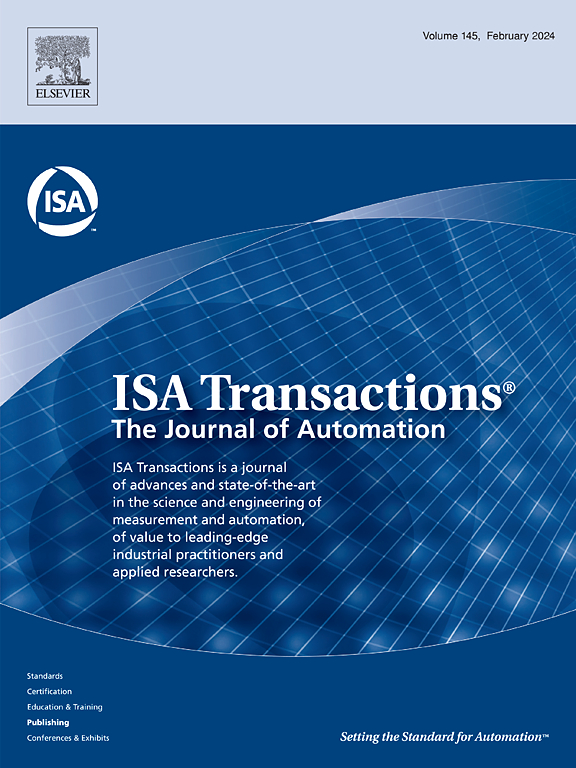An adaptive neural network approach for resilient leader-following consensus control of multi-agent systems under cyber-attacks
IF 6.3
2区 计算机科学
Q1 AUTOMATION & CONTROL SYSTEMS
引用次数: 0
Abstract
This paper addresses the dynamic neural networks (DNNs) based resilient leader-following consensus control of multi-agent systems (MASs) under unidentified false data injection (FDI) attacks. We have examined generic linear leader-following agents in the context of stochastic FDI attacks on the network topology. When information is sent from one agent to another, it is altered as a result of the attacks. In this study, we have introduced a new method to identify FDI attacks using DNNs. The DNNs adapt by adjusting their weights based on system errors, allowing them to approximate the nonlinear dynamics of these attacks using a state translation method for the receiving agent, as we do not have any estimate or the information of the states of the sending agent. The attacks considered in this study are network attacks, which are easier to initiate but harder to counter compared to the traditional input–output attacks. The unknown FDI attacks are estimated with the help of DNNs, which allow the evaluation and isolation of large amplitude attack signals. Unlike previous methods, this approach handles probabilistic stochastic FDI attacks and negates attack estimations from the system dynamics, enhancing the controller resilience. Additionally, the paper extends resilient consensus control to the output feedback methodology, providing a feasible consensus method for MASs under stochastic FDI attacks. Simple design constraints for the consensus control are introduced, and the approach is validated through simulations with six unmanned ground vehicles (UGVs).
网络攻击下多智能体系统弹性领导-跟随共识控制的自适应神经网络方法。
本文研究了基于动态神经网络(dnn)的多智能体系统(MASs)在未识别的虚假数据注入(FDI)攻击下的弹性领导者跟随共识控制。我们研究了网络拓扑上随机FDI攻击背景下的一般线性领导跟随代理。当信息从一个代理发送到另一个代理时,它会因攻击而改变。在本研究中,我们引入了一种使用dnn识别FDI攻击的新方法。dnn通过根据系统误差调整其权重来适应,允许它们使用接收代理的状态转换方法来近似这些攻击的非线性动态,因为我们没有任何估计或发送代理的状态信息。本研究中考虑的攻击是网络攻击,与传统的输入输出攻击相比,网络攻击更容易发起,但更难反击。利用深度神经网络对未知的FDI攻击进行估计,从而可以对大振幅攻击信号进行评估和隔离。与以前的方法不同,该方法处理概率随机FDI攻击,并从系统动力学中否定攻击估计,增强了控制器的弹性。此外,本文将弹性共识控制扩展到输出反馈方法,为随机FDI攻击下的质量提供了一种可行的共识方法。介绍了共识控制的简单设计约束,并通过六辆无人地面车辆的仿真验证了该方法的有效性。
本文章由计算机程序翻译,如有差异,请以英文原文为准。
求助全文
约1分钟内获得全文
求助全文
来源期刊

ISA transactions
工程技术-工程:综合
CiteScore
11.70
自引率
12.30%
发文量
824
审稿时长
4.4 months
期刊介绍:
ISA Transactions serves as a platform for showcasing advancements in measurement and automation, catering to both industrial practitioners and applied researchers. It covers a wide array of topics within measurement, including sensors, signal processing, data analysis, and fault detection, supported by techniques such as artificial intelligence and communication systems. Automation topics encompass control strategies, modelling, system reliability, and maintenance, alongside optimization and human-machine interaction. The journal targets research and development professionals in control systems, process instrumentation, and automation from academia and industry.
 求助内容:
求助内容: 应助结果提醒方式:
应助结果提醒方式:


